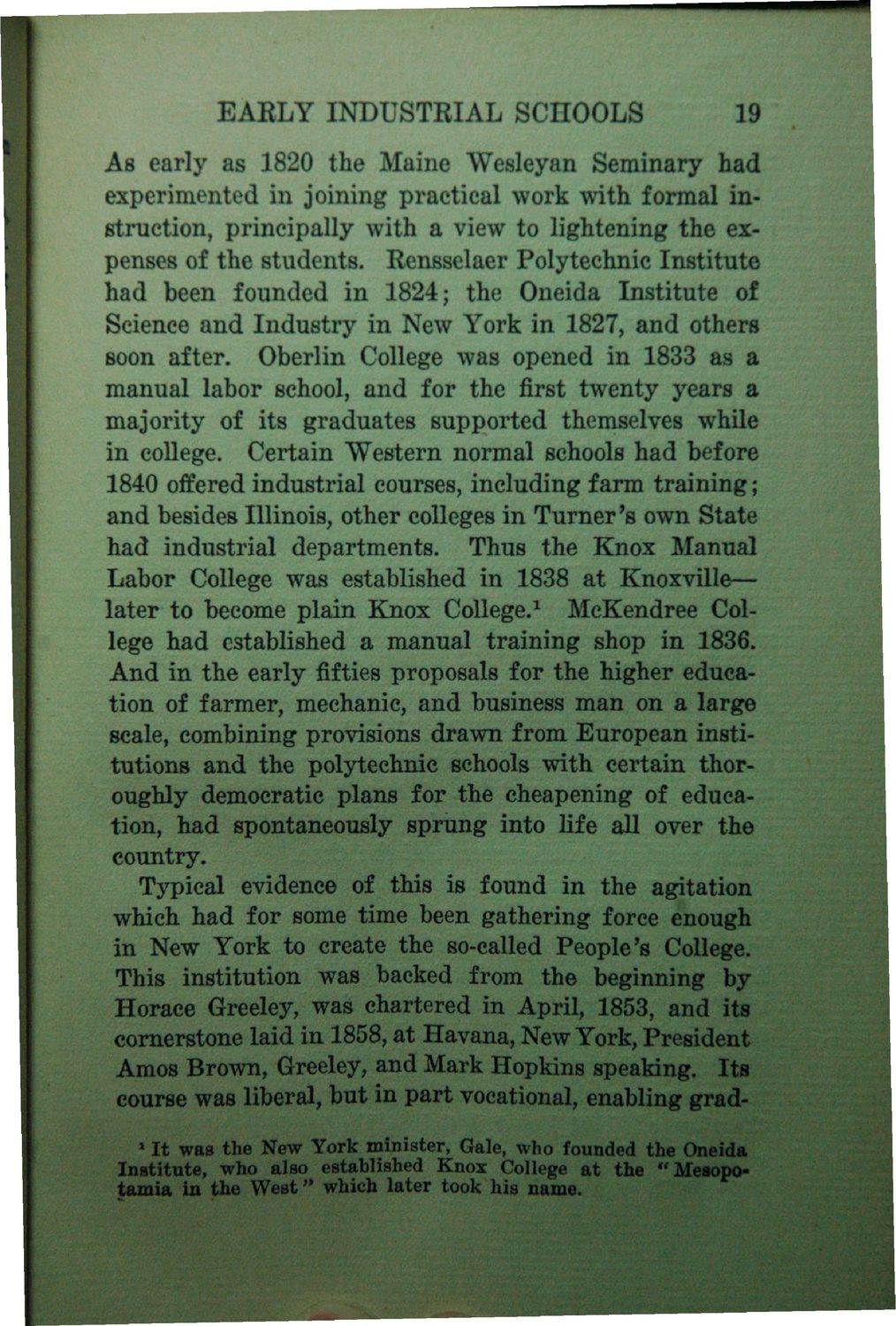| |
| |
Caption: Book - History of the University (Nevins)
This is a reduced-resolution page image for fast online browsing.

EXTRACTED TEXT FROM PAGE:
EABLY INDUSTRIAL SCHOOLS 19 As early as 1820 the Maine Wesleyan Seminary had experimented in joining practical work with formal instruction, principally with a view to lightening the expenses of the students. Rensselaer Polytechnic Institute had been founded in 1824; the Oneida Institute of Science and Industry in New York in 1827, and others soon after. Oberlin College was opened in 1833 as a manual labor school, and for the first twenty years a majority of its graduates supported themselves while in college. Certain Western normal schools had before 1840 offered industrial courses, including farm training; and besides Illinois, other colleges in Turner's own State had industrial departments. Thus the Knox Manual Labor College was established in 1838 at Knoxville— later to become plain Knox College.1 McKendree College had established a manual training shop in 1836. And in the early fifties proposals for the higher education of farmer, mechanic, and business man on a large scale, combining provisions drawn from European institutions and the polytechnic schools with certain thoroughly democratic plans for the cheapening of education, had spontaneously sprung into life all over the country. Typical evidence of this is found in the agitation which had for some time been gathering force enough in New York to create the so-called People's College. This institution was backed from the beginning by Horace Greeley, was chartered in April, 1853, and its cornerstone laid in 1858, at Havana, New York, President Amos Brown, Greeley, and Mark Hopkins speaking. Its course was liberal, but in part vocational, enabling gradIt was the New York minister, Gale, who founded the Oneida Institute, who also established Knox College at the "Mesopotamia in the West 1 which later took his name. 1
| |